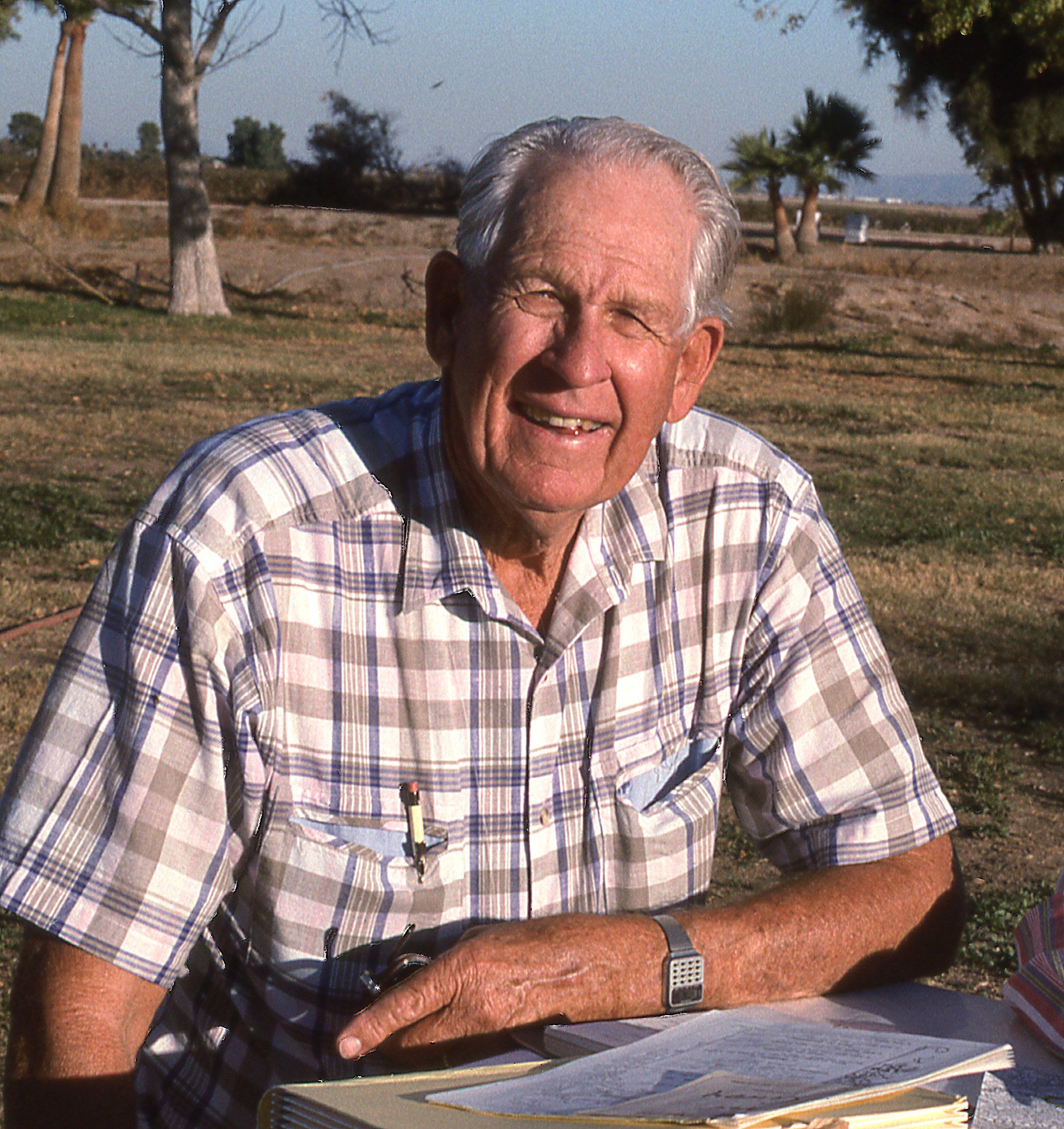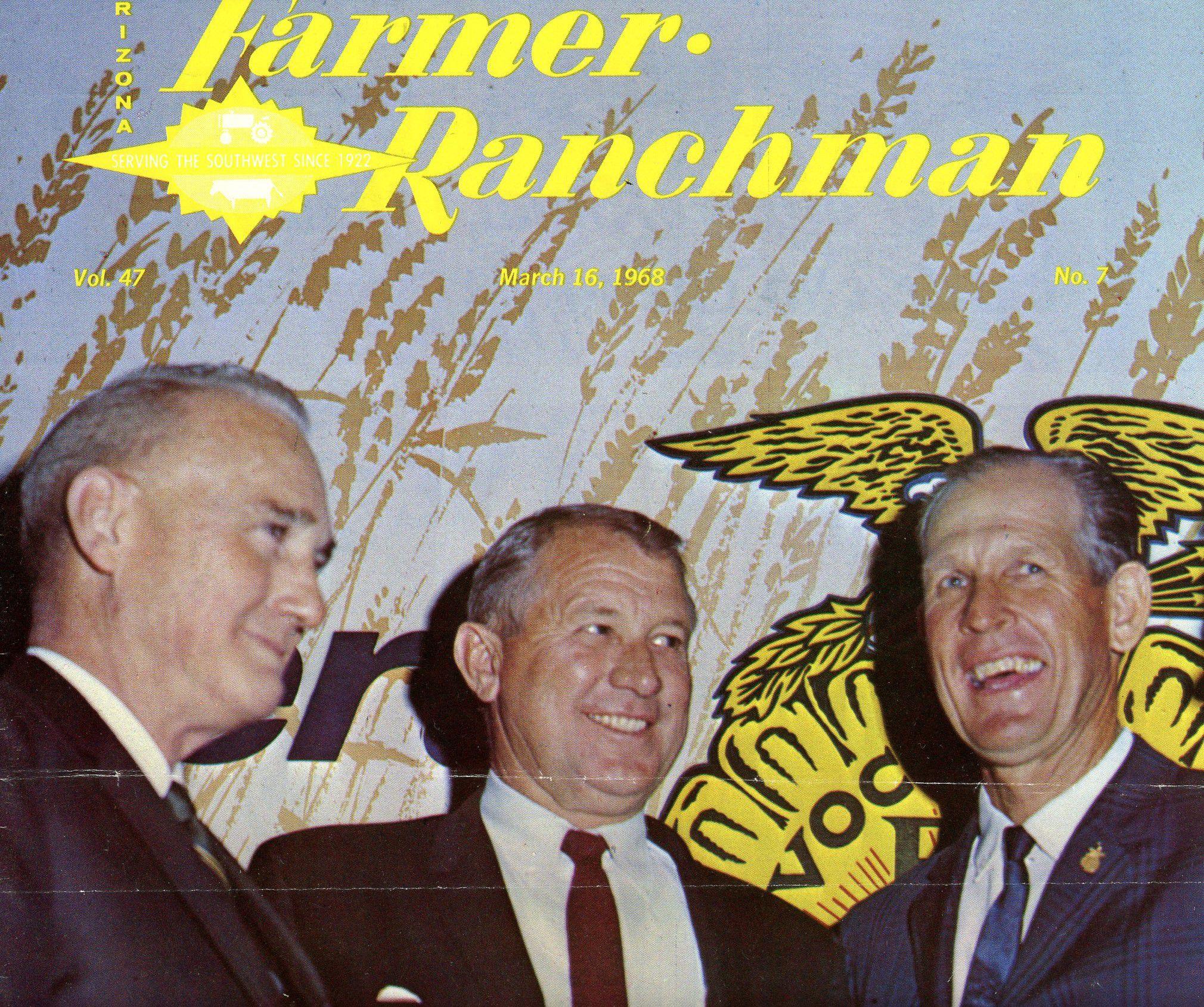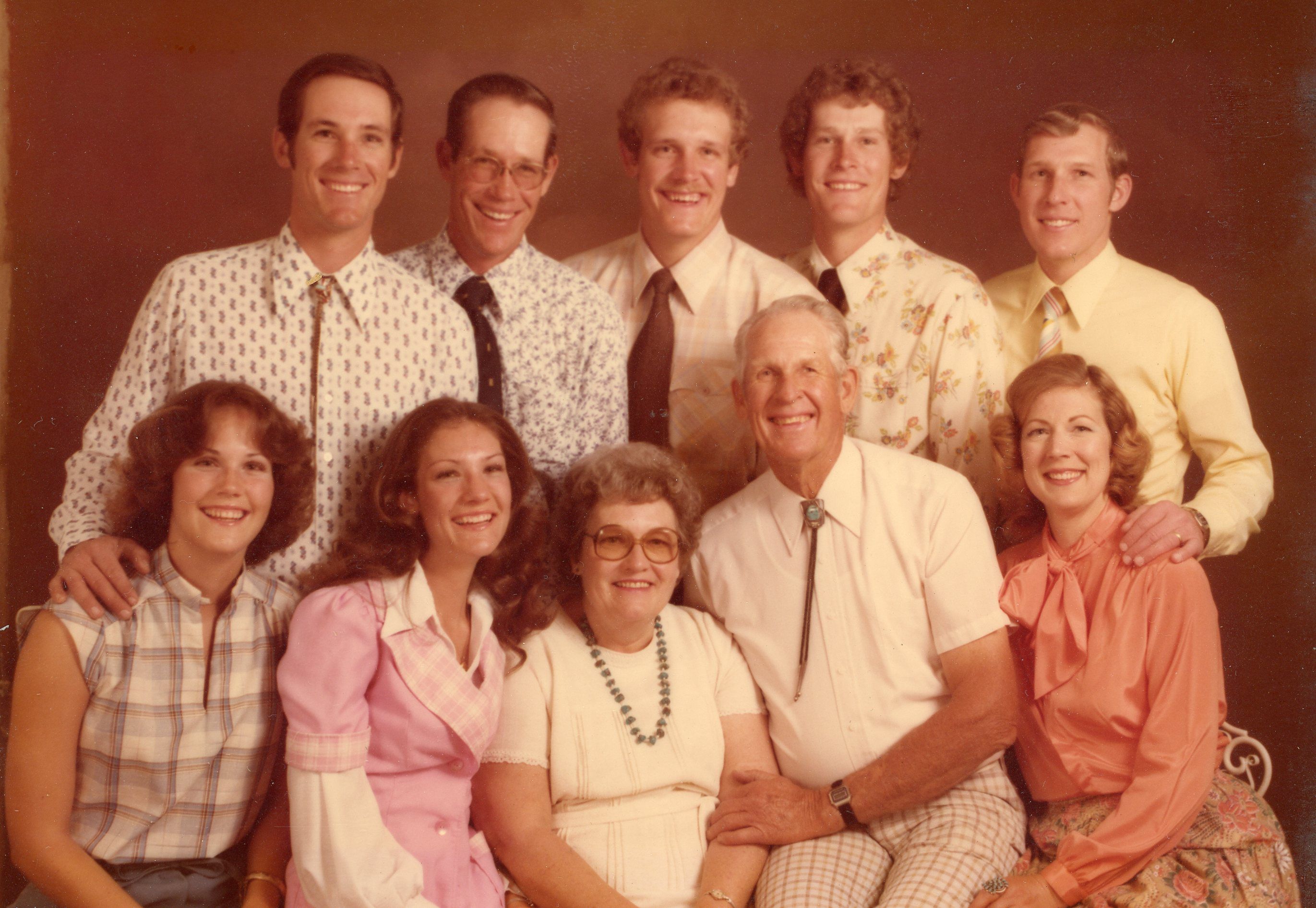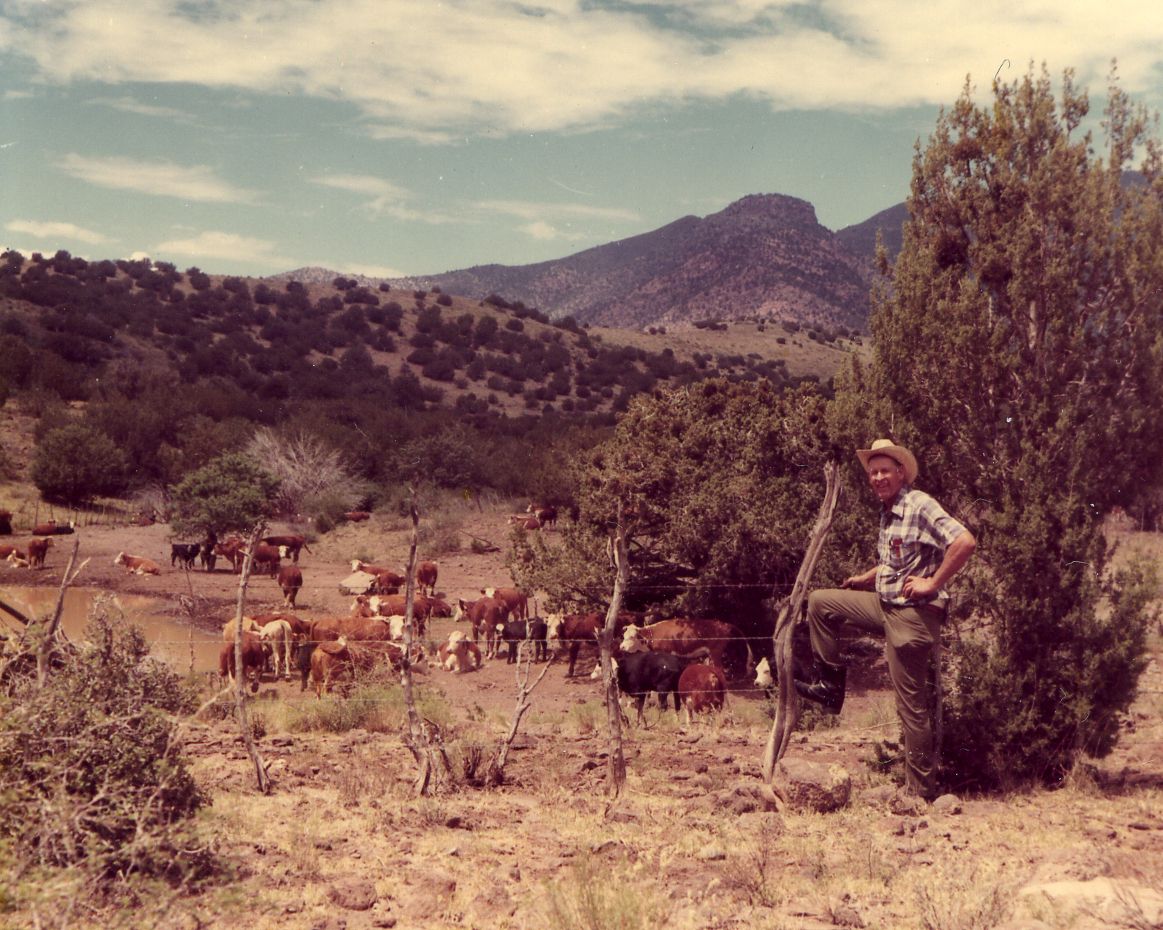Meet Arizona Agriculture’s Emil Rovey Family
Author
Published
10/16/2018
In agriculture circles, we often say at least one Rovey will be at an upcoming agriculture or Farm Bureau meeting. And, once you read Emil Rovey’s story, you’ll understand why. The Rovey family has deep roots in Arizona agriculture. They were farming in this desert state before it was a state. And, several of the children and their children’s children have continued the agriculture tradition.
In November, Emil Rovey’s family will be recognized with the 2018 Heritage Award for Emil’s steady involvement and leadership in Arizona agriculture. While Emil passed away in 1998, the family’s agriculture legacy lives on.

Arizona Farm Bureau’s ongoing series of farm and ranch families.
Arizona Farming and Ranching Hall of Fame Executive Director Carole De Cosmo’s oral history interviews.
The Rovey family roots originated in Illinois where a young farmer, Albert Rovey, married a German immigrant, Minnie Hartmann. Shortly after the birth of their twin sons in 1912, Minnie was diagnosed with tuberculosis. On the advice of her doctor, Albert and Minnie boarded a train to Phoenix, leaving their boys behind with relatives. Albert's animals and equipment on the Illinois farm were sold at an auction. Minnie spent the winter in the warm Arizona sunshine and regained her health. The next spring, Albert's parents each carried a nine-month-old twin from the train to rejoin their parents in Phoenix.

To say that Emil Rovey was dedicated to the land would be an understatement; agriculture defined not only what Emil did, but who he was. He was connected to the land at an early age and would continue his involvement with it for the rest of his life. Most likely, Emil inherited his passion for the land from his German grandfather whose motto was, “Grow more corn, to feed more pigs, to buy more land, to grow more corn…;” a philosophy Emil pretty much adopted as his own. It was this grandfather who, in 1913, purchased 80 acres on the northeast corner of Bethany Home Road and what is now 19
Emil’s father, only 36 years old, died in 1921, leaving five-year-old Emil with his mother, his three brothers, a younger sister
When Emil graduated from Glendale High School in 1934, the country was beginning to pull out of the devastating depression that began in 1929. Because of the economic conditions, he did
In 1941, Emil married Helen Louise Beck, whom he met while attending the Lutheran church in Tucson. The union lasted until her death in 1982.
In 1943 Emil bought a 145-acre farm in Glendale. He always said, “We moved in the front door and the seller went out the back. That night we started milking cows.”
But there was more to him as well. His life revolved around three things, his church, his family and his farm.

As if crop production and dairying weren’t enough, he got into the poultry business in the 1950s when he took the few chickens Helen kept in the backyard and grew them into a poultry operation with 24,000 hens at its peak. He was president of the Central Arizona Poultry Association.
In 1957 he added ranching to his resume when he bought three ranches in the Bloody Basin area. He ranched the area for 16 years, but sold not long after his son, Dan, was killed in an accident while hauling cattle from the ranch to the Glendale farm, just weeks before Dan was to graduate from Glendale High School.

With all of his accomplishments, probably the one thing Emil was most proud of was his long-standing friendship with a group of international students from Scandinavia. That all started in 1954 when two Danish brothers knocked on his office door looking for work. During the next 30 years, approximately 200 international students found employment at Rovey’s farm to learn American farming methods. Most of the students came from Denmark, so many in fact that there was a Rovey Society in Denmark, where alumni get together, have picnics and talk farming.
Following Helen's death, Emil married Ruth Block Haertel, a widow, and longtime friend. They enjoyed traveling in this country and abroad for fifteen years. Their trips took them to Denmark and the Scandinavian countries to visit their “Danish boys.”
An accomplished photographer, Emil's lifelong interest in taking pictures has provided the Rovey family with a treasury of photographic reminders of their rich family history, traditions
A big man with a big heart and ready smile, Emil M. Rovey, 82 years old, died peacefully while taking an afternoon nap at the family home on Northern Avenue on July 25, 1998.
Editor’s Note: With a few minor updates, this article originally appeared in the Arizona Farming and Ranching Hall of Fame, Volume 1, book.